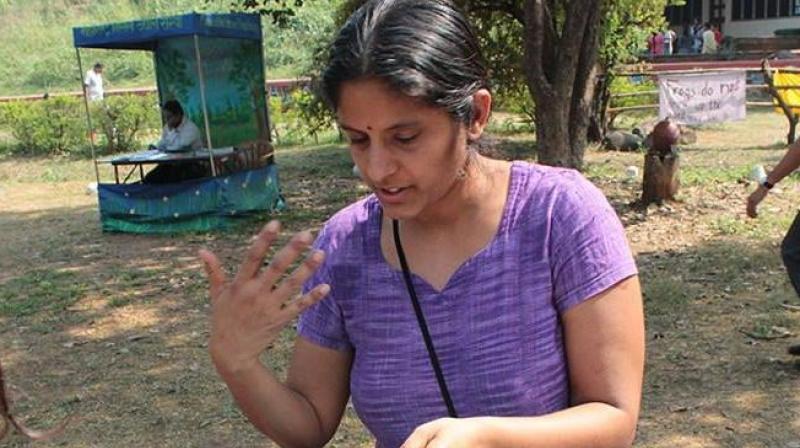US: Indian-American woman stopped, questioned about immigration

New York: An Indian-American woman, who has lived in the US for over 30 years, was stopped and asked about her immigration status while she was routinely walking in her neighbourhood in Maryland, as tensions and fear grow regarding US President Donald Trump's immigration policies.
Aravinda Pillalamarri, 47 was walking in her Bel Air neighborhood on the morning of December 21, a routine with her, when she said she was stopped by a Bel Air Police Department officer, a report in The Baltimore Sun said.
Pillalamarri, who was born in India but moved with her parents to the US when she was young, was asked by the police officer about what she was doing and she replied that she was walking. The officer continued to ask several questions. When she asked why the officer was asking her so many questions, he replied because someone had called police.
"Walking while brown?" Pillalamarri said she then asked the officer.
The report said a police supervisor arrived at the scene and began to question Pillalamarri more aggressively. The supervisor told her she wasn't free to leave because she "was under criminal investigation."
He asked why she didn't have identification with her.
"Why don't you have ID?" she said the supervisor asked her.
"Are you here illegally?"
Once the officers had run her name through their computer system, Pillalamarri said, she was allowed to leave and walked to her home, just a few doors away.
Pillalamarri, has lived in Bel Air for more than 30 years and is a US citizen. Her parents came to America from India when she was a baby. She went to Bel Air High School.
"Only when the supervisor asked 'are you here illegally' did my sense of colour, and of being unequal, come forth and my interest in my civil rights take a back seat to get out of the situation safely," she said in the report.
"Public safety does not need to come at the cost of civil rights," she added. "I am sharing this incident here not to ask anyone here to find fault or take sides. We are all on the same side and can use this as an opportunity to learn and improve. The responsibility to uphold civil rights is one that all of us share, and we need to do our part and also expect the police to do their part."
Pillalamarri said she walks in her neighbourhood nearly every day. She related her story to members of the Bel Air Board of Town commissioners at their town meeting on January 17, not to get anyone in trouble but to bring to their attention the need to uphold everyone's civil rights.
Colour was not on her mind when she was first stopped, Pillalamarri told the commissioners.
Bel Air Police Department Chief Charles Moore, who's led the agency since September 2015, said he's not sure if his department has a policy specifically dealing with questioning a person's immigration status, but added: "If there isn't one, there will be."
Moore, who was present at the meeting, said his officers do not ask someone's immigration status, particularly during a routine call. In Pillalamarri's case, there had been a call about suspicious activity and the officers responded, he said.
"There could have been more sensitivity on the part of the officer," Moore told the town commissioners.
Pillalamarri said she was uncertain of what her rights were when the officers stopped her.
"Police are training in dealing with people when they stop them on the street, but ordinary people are not necessarily training in interacting with the police," she said to the commissioners. "I did not know when I was stopped whether I had the right to remain silent, whether I was being legally detained or what information I was required to give."
Pillalamarri has since met with Moore, as well as Town Administrator Jesse Bane, who was formerly county sheriff and a career police officer, about the incident.
Moore said at the town meeting the police department could hold an open forum with the community.
"The community needs to be aware of what police are doing. They have to investigate fully," he said. "And on the officer's part, there has to be sensitivity, so it doesn't escalate to the point of being wrong, of things being said they way they're said."

